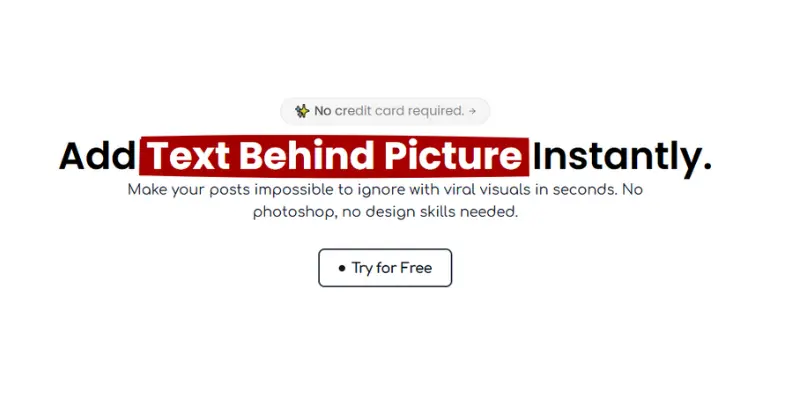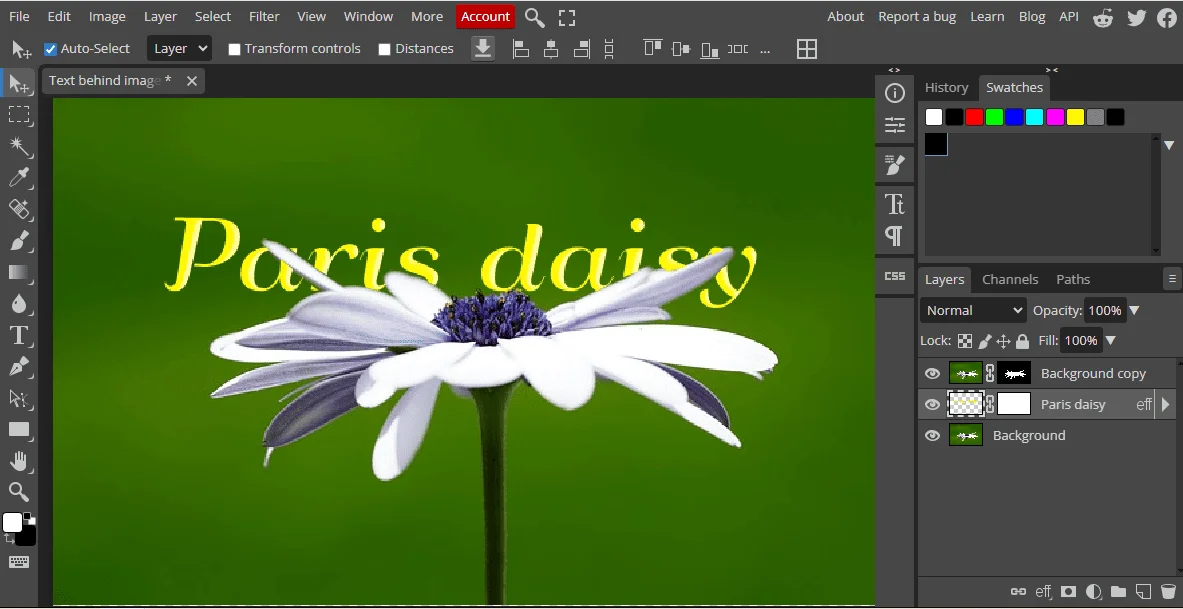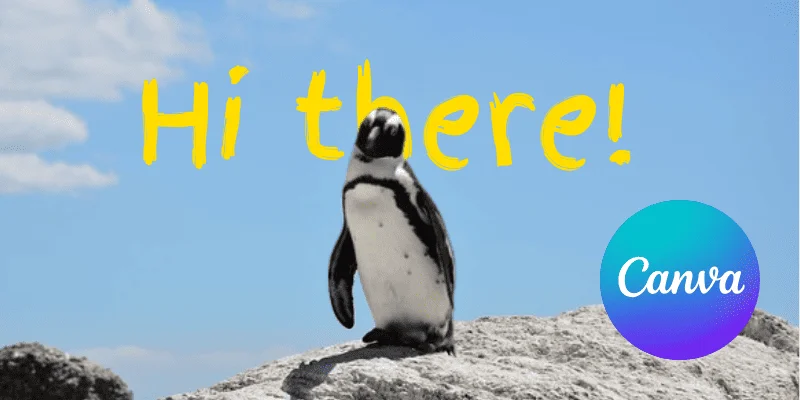
Designing visuals that capture attention is one of the most valuable skills for creators today. Whether you are working on YouTube thumbnails, posters, flyers, or social media graphics, the way text interacts with your image can make all the difference. One of the most popular effects is placing text behind an object in a photo. Traditionally, this effect required professional software like Photoshop and a fair amount of skill with layer masking.
But what if you could do this effect instantly, online, and for free? That’s exactly what TextBehindPicture.com allows you to do. It removes the complexity and makes the process beginner-friendly. Instead of brushes, selections, and hours of practice, you just upload, type, adjust, and download.
In this step-by-step tutorial, I’ll guide you through the entire process. By the end, you’ll know how to create professional “text behind subject” effects with no prior editing experience.
Why Choose TextBehindPicture.com?
Before we jump into the steps, let’s answer an important question: why this tool?
- No downloads or signups – Everything works directly in your browser.
- Free to use – Unlike Photoshop or paid tools, there’s no subscription.
- Beginner-friendly – The process is simplified so anyone can follow along.
- Creative freedom – You can customize fonts, text styles, and even image brightness or contrast.
Instead of spending hours learning complicated tools, you can focus on your creativity.
Step 1: Go to the Website and Click “Try Now”
Start by visiting TextBehindPicture.com.
On the homepage, you’ll see a “Try Now” button. Click it, and the editor will open. This is your workspace where all the editing happens.
Step 2: Upload Your Image
Once the editor loads, the first thing you need to do is upload the photo you want to edit.
- Click the Upload Image button.
- Select an image from your computer or mobile device.
- The tool will take a few seconds to load your image.
It’s worth waiting a moment because the platform optimizes the image for editing in the browser.
Step 3: Add Text to the Canvas
After your image has loaded, look for the text input box.
- Type your desired text (for example, your title, slogan, or name).
- As soon as you type, the text will appear on your uploaded image.
This is the starting point. From here, you can position and style your text exactly how you want it.
Step 4: Position the Text Using Your Mouse
Now comes the interactive part.
- Click and drag your text box directly on the image.
- Place it where you want the text to appear behind your subject.
This step is flexible. You can experiment by moving the text around until it feels natural and visually balanced.
Step 5: Adjust Text Properties
TextBehindPicture.com gives you plenty of options to customize how your text looks.
Here’s what you can do:
- Capitalization – Switch between uppercase, lowercase, or styled case.
- Bold – Add emphasis by making your text thicker and stronger.
- Font style – Choose from a range of fonts to match your design mood (professional, fun, modern, or bold).
- Opacity – Make your text more transparent or solid, depending on how much you want it to stand out.
- Rotation – Tilt the text slightly for a creative effect.
- Font size – Use the slider to make the text bigger or smaller until it feels right.
Each of these options is simple to control. You don’t need design knowledge to experiment—just try different combinations until your text blends seamlessly with the image.
Step 6: Adjust Image Properties (Optional)
Sometimes, the image itself needs a bit of adjustment to match your text. The editor also includes options for this:
- Contrast – Increase or decrease contrast to make the subject and text more distinct.
- Brightness – Lighten or darken the photo for a better visual balance.
These are optional, but they often help make the final design look more polished.
Step 7: Download Your Final Image
Once everything looks perfect, it’s time to save your work.
- Press the Download button.
- Choose your preferred format (JPG or PNG).
- The edited image is saved directly to your device.
Now your new design is ready to use in thumbnails, social media, posters, or anywhere else.
Tips for Better Results
Here are a few extra pointers to take your designs to the next level:
- Use high-resolution images with a clear subject.
- Keep your text short and bold so it remains legible.
- Experiment with opacity and contrast to create depth.
- Don’t overcrowd the design; leave some breathing space.
- Always preview your work before downloading.
Real-World Uses
The text-behind-image effect isn’t just trendy; it’s practical. Here’s where it can make an impact:
- YouTube Thumbnails – Grab attention instantly.
- Instagram Posts – Stand out in crowded feeds.
- Business Flyers – Add a professional touch.
- Educational Graphics – Highlight important text without distracting from the subject.
Conclusion
You don’t need Photoshop, subscriptions, or hours of practice to put text behind images. With TextBehindPicture.com, the entire process is broken down into simple steps: upload, type, style, and download.
It’s free, online, and made for beginners. If you want your designs to look creative and professional without investing in heavy tools, this platform is an excellent choice.
The next time you’re creating a thumbnail, poster, or social media graphic, give it a try. You’ll be surprised how quickly you can produce results that look like they were made in a professional studio.
👉 Start now at TextBehindPicture.com and see how easy it is to place text behind your images.
Read more

Why TextBehindPicture.com is the Easiest Way to Put Text Behind Effect
Discover why TextBehindPicture.com beats Canva and Photopea for putting text behind objects in images. A simple, free, and beginner-friendly tool for stunning designs.

How to Put Text Behind an Image in Photopea (Step-by-Step for Beginners)
Learn how to place text behind an object in Photopea an Online tool with this easy step-by-step guide for beginners.

How to Put Text Behind an Image in Canva (No Photoshop Needed)
Learn how to easily place text behind an image in Canva without using Photoshop. A simple step-by-step guide for beginners to create professional designs.